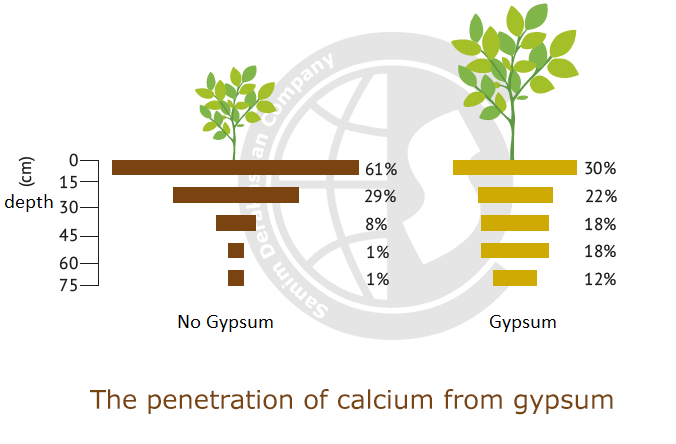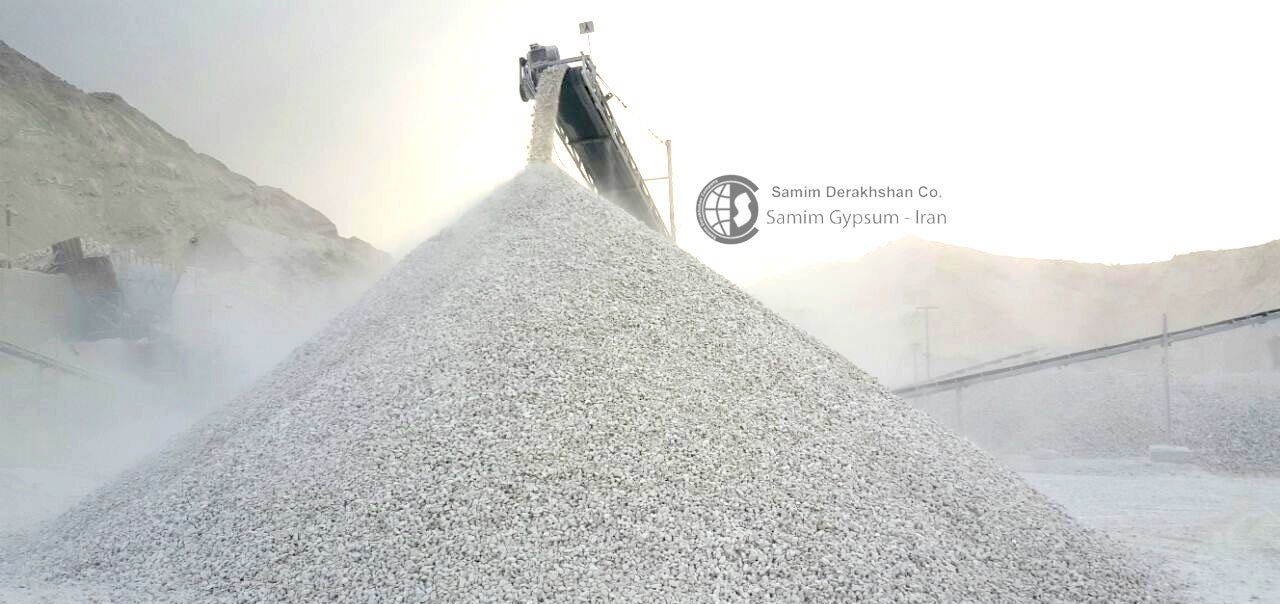Agriculture Gypsum
Calcium is an essential micro nutrient for any crop, responsible for cell division and growth, protein synthesis and carb transportation and for the cell wall structure. However, it is most popularly known for a role it plays outside the plant system, which is the correction of soil acidity.
It is important to stress that the increase of the soil’s pH by neutralizing its acidity is a characteristic exclusive to lime, and is only related to calcium because it is part of its structure (CaCO3). So, if this is your main goal, gypsum is not the answer.
Gypsum, also known as calcium sulfate is not an acidity corrective, but a soil conditioner, which means it won’t affect the pH, but it will promote the improvement of physical, chemical and biological properties of the soil, especially on the subsoil.
You might be wondering how this improvement happens. Well, there are many ways that gypsum can be beneficial to the plant.
- It carries calcium deep in the soil
Due to gypsum’s high solubility, it quickly increases the concentration of calcium deeper in the soil improving its fertility. As mentioned before, calcium is a very important nutrient for the plants for various reasons. One of them is cell division and growth, so, in order for the roots to grow, it is necessary to have enough calcium available for them. The problem is, calcium’s mobility in the soil is quite low, so it usually stays in the surface causing most of the roots to stay on the soil surface as well. Also, this nutrient is absorbed at the root cap, consequently, the deeper the nutrient goes on the soil profile, the more contact it will have with the root cap and the more it will stimulate its growth.
WHEN TO USE GYPSUM
The best results for gypsum application will be seen in areas that suffer with droughts and need deeper roots to absorb water, therefore don’t have calcium in the subsoil, because the lack of water will not allow the nutrient to go deeper in the soil or get in contact with the root by mass flow as it should.
Also, gypsum can be used in areas with low calcium on the soil like tropical regions, where calcium is easily leached by the excessive rainfall.
To know whether the crop will respond to gypsum, it is necessary to observe the calcium, aluminum, and base saturation values of the soil test considering 20-40 cm depth (or 8 to 16 inches). If the test shows either low calcium, low base saturation or high aluminum, the use of gypsum is recommended, and should be applied all over the land before planting.
text from : https://www.smart-fertilizer.com
Natural Gypsum Fertilizer & Soil Conditioner
gypsum is an agricultural grade gypsum mined from naturally occurring ocean deposits formed centuries ago. It acts as a soil amendment by reducing soil compaction and flocculating dispersive soils, thereby it loosens heavy/hard clay soils and improves water infiltration into subsoil. Reducing soil salinity as well as aluminum toxicity are among other benefits of gypsum. It is a fertilizer too, since it contains essential micronutrients calcium and sulfur; gypsum helps correct sulfur deficiency without changing soil pH.
Features:
|
|
Usage:
For use in agricultural crops (paddy rice, tomatoes, potatoes, groundnuts, mushrooms, corn, sugarcane etc.); for lawn, turf, golf course and landscaping; for clearing muddy ponds and many others.

Sample Analysis
| Purity (CaSO4.2H2O) | +95% |
| Calcium (Ca) | 23% |
| Sulfur (S) | 18% |
| Chloride (Cl–) | 0.1% max. |
| Free Moisture | 1% max. |




